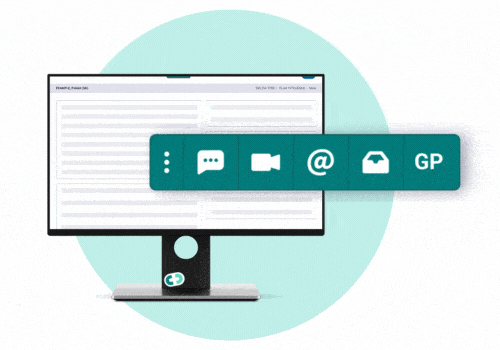GPs ‘key’ to more mobile health
- 27 September 2012

GPs and new clinical commissioning groups are key to the deployment of more mobile health systems, the European Connected Health Alliance says.
Alliance director Bleddyn Rees – a lawyer who previously advised the Department of Health and former Prime Minister, Tony Blair – spoke at the Mobile Healthcare Industry Summit in London on Tuesday.
The summit brought together clinicians, analysts and corporate organisations to discuss m-health technologies such as smartphone apps and ecosystems and the issues that have prevented these solutions being adopted on a wide-scale by NHS trusts.
Rees told delegates that despite the current obstacles to m-health, such as the complexity of the NHS, he believed the reforms might benefit such initiatives.
“I am optimistic that if the reforms work and GPs step up to the plate and start to get involved in active commissioning of services, this could be a great thing for industry as we could see them deploying many of the m-health solutions that previously have been struggling to get past PCTs,” said Rees.
“The healthcare industry is massively complex and we have the best technology and we have a number of solutions, but we do have this problem of a limited uptake.
“The NHS, for example, is the fifth largest employer in the world and if we are going to take disruptive technology into it, of course people are going to be threatened by the way they do work and we have to understand that,” he added.
Research indicates that there are 40,000 medical apps available for smartphones and tablets and such devices are used by 51% of the UK’s population. Mobile app downloads have increased from 124m in 2011 to 247m in 2012 and there are more than 500 m-health projects worldwide.
Event delegates cited factors such as legal concerns, poor understanding of disruptive solutions in the NHS, poor understanding of public and private partnerships and the requirement for substantial evidence from start-ups and other corporate entities, as preventing wider uptake of m-health solutions.
Rees acknowledged the requirement for evidence, but argued it is time to “bust the evidence myth”, which surrounds the m-health environment.
“I actually think the university sector makes an incredible amount of money by undertaking research and there is an element that the research industry is self-fulfilling. Medicine by its definition is intuitive, when you are really seriously unwell there’s a trial and error process that is undergone in hospitals and that process is risk management by a qualified clinician,” he explained.
“To me there is no reason why these technologies can’t be deployed on the basis they don’t do any harm, and many of them, at worst, will just show no cost benefit improvement. There is a requirement for evidence – we don’t dismiss that – but there needs to be a better balance.”




